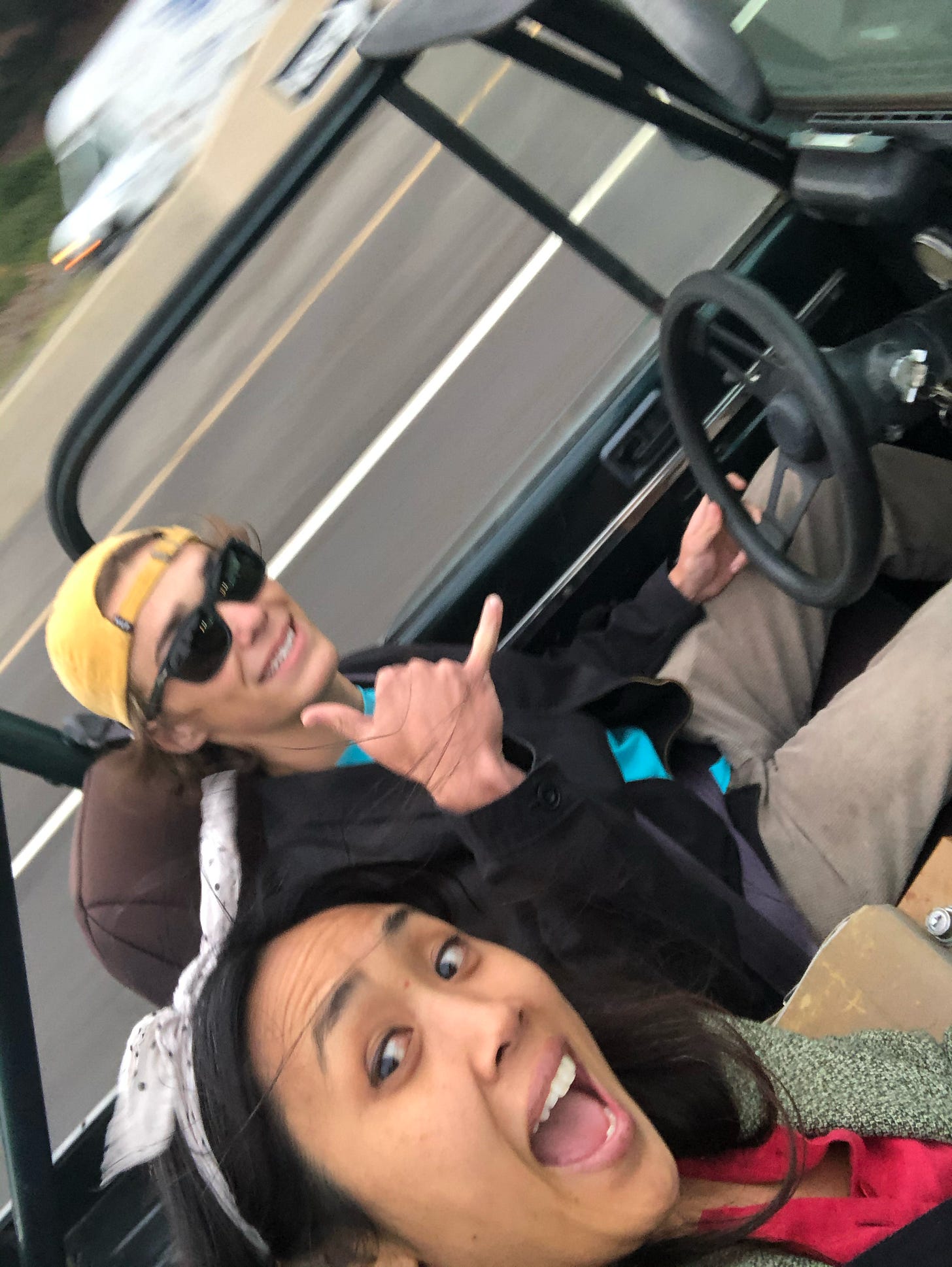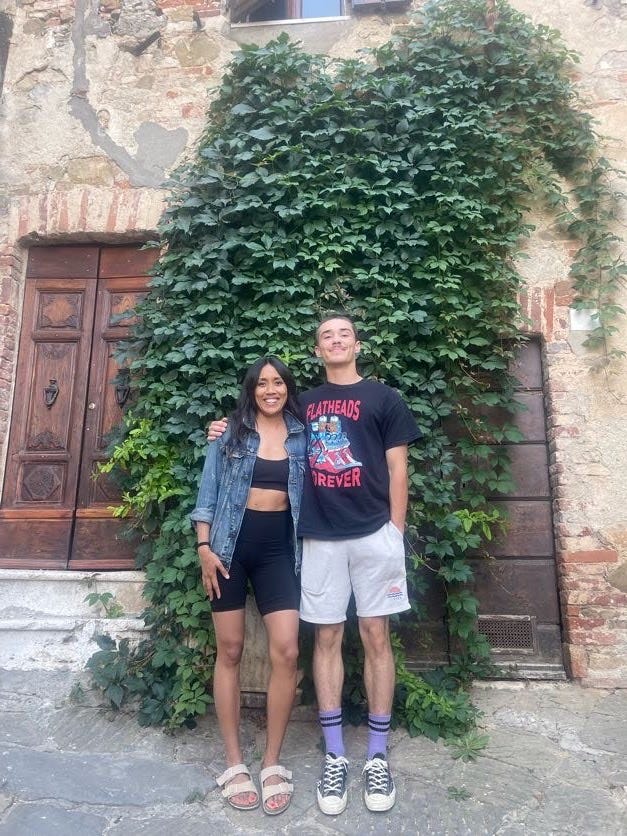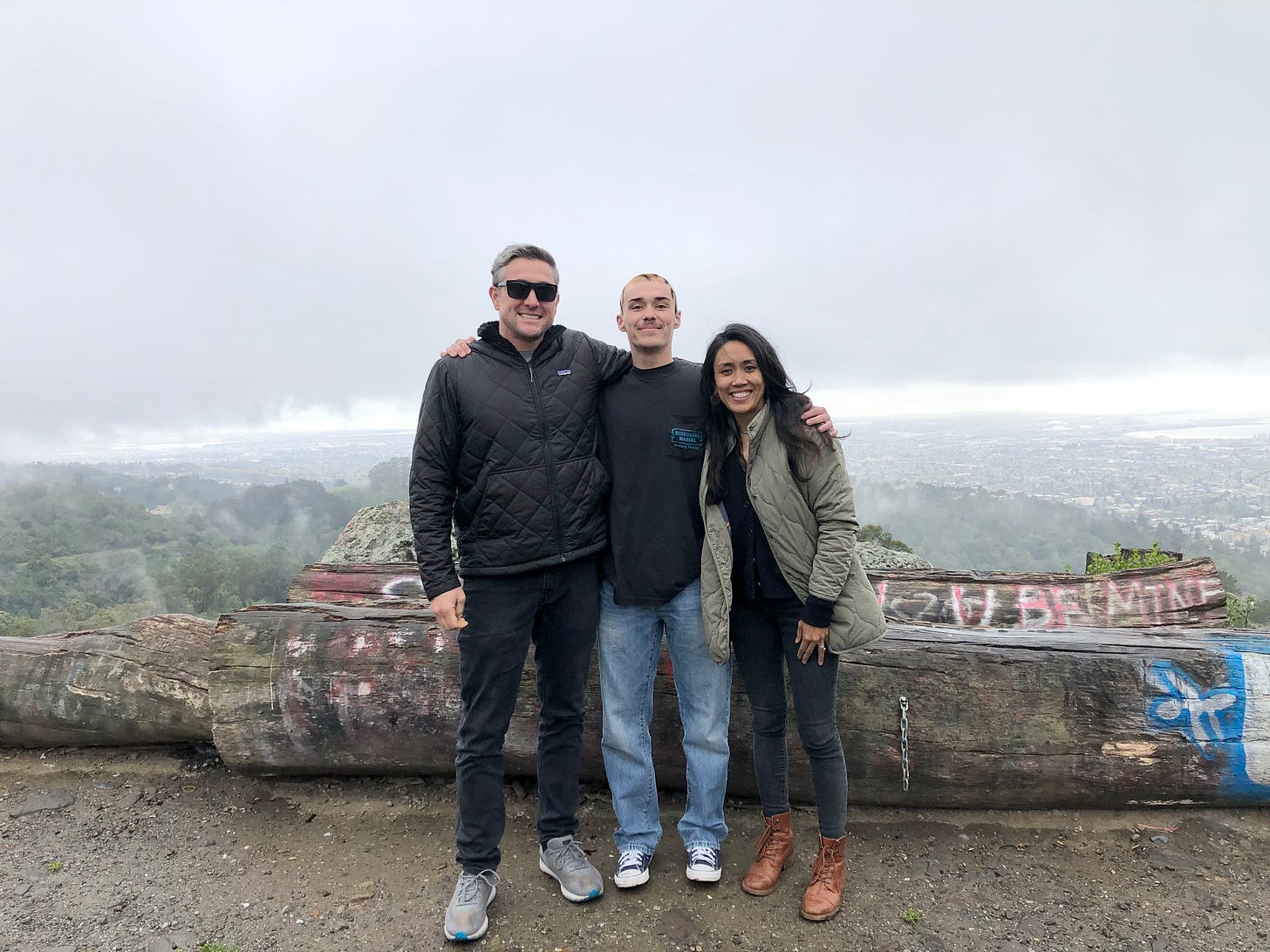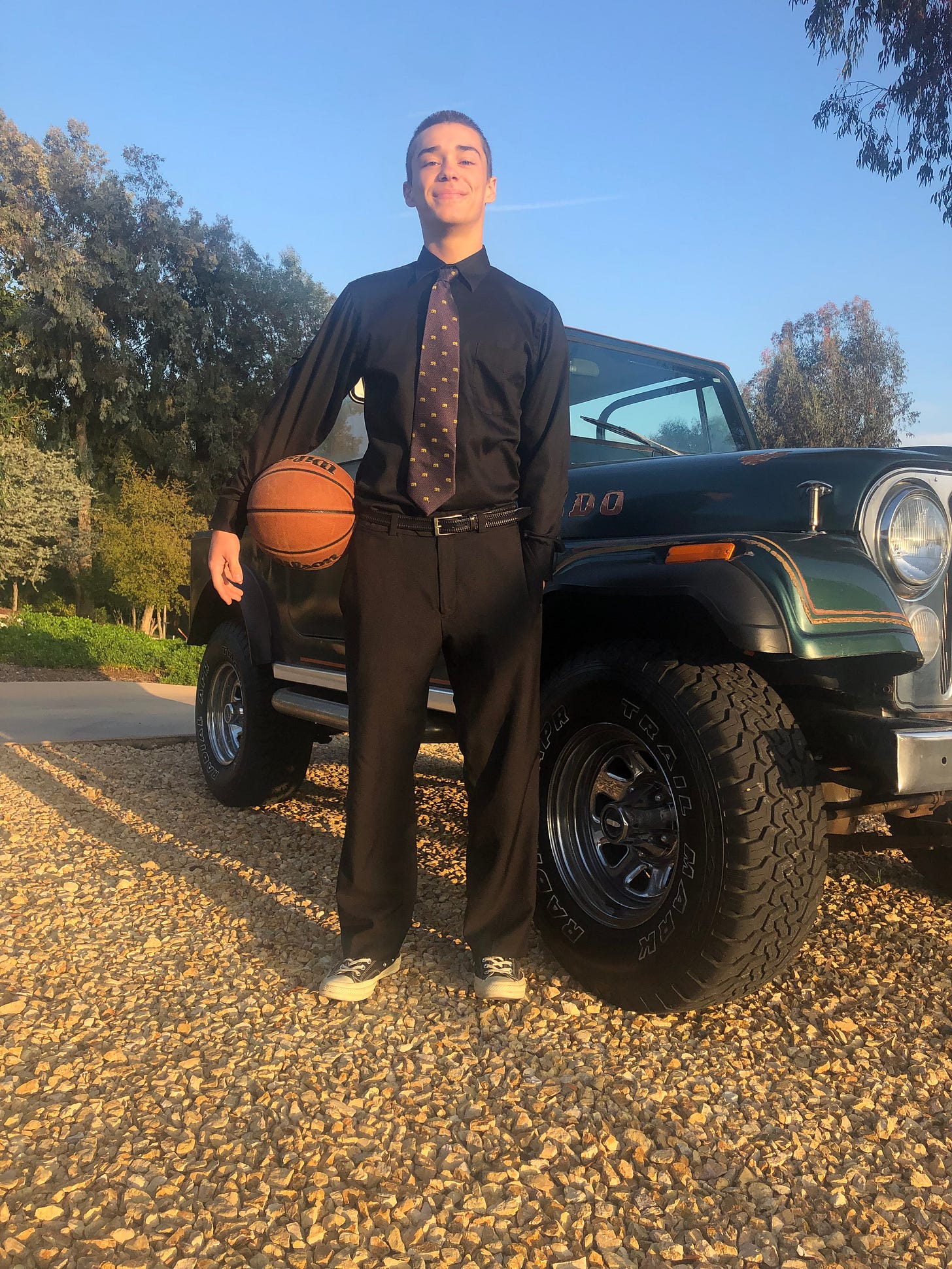Hi! You can hear me read today’s piece by clicking on the article voiceover. Send this essay to a friend, if you think it’s worth sharing. If you’re new here, you can subscribe to receive my newsletter a couple Fridays a month.
Earlier this year, I saw a query from an editor asking for essays about raising teenagers. I put on my old PR hat and pitched her my angle and she said the topic sounds interesting, send her a draft of 700 words.
I wrote the piece, ran it by my nephew (who the essay is about) and sent it off.
It was published in May in Business Insider and I hardly shared it with anyone. I cringed at parts of it. I didn’t write the headline and the various subheads in the beginning or throughout the article. They are linguistic details I wouldn’t have chosen but, in the end, I knew the territory I walked into. This is the publishing world and it can be sticky. When we offer our work to another publication, the editors have the liberty to update the text to fit their style.
That said, she kept a large part of what I wrote intact but it was broken up in a way that seemed choppy and lacked flow. The content was still there but stylistically, the outfit pieced together — in my opinion — looked tacky.
This editor took my essay and updated it her own way, with her own approach. Although I didn’t enjoy how it read, it wasn’t wrong, it was just her way of doing the job (plus I signed a contract saying she can make edits).
The piece was about taking in my nephew when he was 15, and knowing absolutely nothing about how to do it. It got me thinking — this article submission process is like raising a kid, or mentoring a professional, or being a teacher and guide. When we are in a position of influence with someone, we take what we know, share it, and we watch what they do with the information. There may not be a contract in these situations but it’s unwritten law that the folks we lead have free will.
Often what they do is not like what you expected. Sometimes you think, well, that’s def not how I would have done it but that way works, too. Or you completely disagree and need to watch the results. And wince.
So. Must remember: Note to self: Put this on a sticky: When it comes to leading, guiding, parenting, offering advice when asked, or sharing my opinion… this ain’t about me.
I wanted to share what I wrote, without someone else’s edits. It’s the beauty of having this newsletter. I get to write what I want, how I want.
I hope you have a lovely Friday.
Ignorance helped us when we suddenly became guardians of a 15 year old
By Stephanie Cooley
On a sunny Sunday afternoon when my son was born, I was done having kids. First we had a daughter then our son joined the mix, and I knew two was enough. But as any parenting story goes, things didn’t turn out like I planned.
Three years later, I was surprised to find myself nesting again. This time I traded a crib for a desk. When I prepared for my teenage nephew’s arrival, I envisioned him hunched over the wooden table cramming for a calculus test or writing his college entrance essays.
This vision actually did come true – he was studious and had a pretty steady head on his shoulders when he arrived on our doorstep. But much of what I had planned for him was different from the detailed picture I had painted in my head.
When my 15-year-old nephew moved in with us in 2020, although I didn’t know it at the time, I was graced with the gift of ignorance. I was raising little ones, 6 and 3, fully immersed in potty training, sleep regressions, and finger foods stuffed in unfortunate crevices all around my home. I was in the messy littles era, a physically taxing period of parenting.
Maybe I was dumb and naive to think that parenting a teenager wouldn’t be much harder than handling little children but I like to think that going in blind is what helped me raise him through his high school years.
My nephew’s parents deal with addiction and when we heard he moved out of his mom’s house and bounced between extended family’s places, my husband and I wanted to help. We offered a safe and dependable place for him to finish growing up, two hours away from his hometown, from all the drama and the complexities of his particular life, which left him navigating through a black widow’s web of family situations, frequently erratic and tangled.
He left everything he knew, including his little half sister behind with his mom and her boyfriend, and started new with us. But, really, we started new with each other. In those next three years together, we’d learn about what it would mean to raise a teenager. We quickly learned to often switch our mindset and come at each obstacle from scratch. I had to learn to let go. I had to learn to trust that he had to go out and make mistakes.
I had to realize that much of that foundation built in his earlier years is already there. I can’t change what happened in his past but can I guide him on what to do with the cards he was dealt? It was about witnessing what he can do with it – without us. I learned to be there for when the bones and drywall are nailed in, and let him decide where everything goes, with smart boundaries.
I often bounced between stern and serious or goofy auntie but I always made it a priority to make boundaries clear because I learned that these child minds in adult bodies need them, even though they are pissed at you for making them in the moment.
Maybe it was easier for me to look at it that way – after all, he was not my son, we did not start together from the very beginning in those messy, hands-on days. Some can say I wasn’t as invested but maybe that’s what worked for us. I could better remove that layer of overprotection mode I feel when I’m with my own kids.
Because he wasn’t my son, I could change gears more easily. I am not a risk taker but this guardian dynamic made me operate more like a startup, shifting with changing market conditions. It meant I made many calls to close family and friends who’ve dealt with teens and asking them for their advice. It was learning as I went and, when things got really hard, I relied on the memory of what it was like to be a teenager.
We dealt with it all with him: moving in, dealing with his parents, friends, girls, sex, curfews, drugs, alcohol, getting a license, driving, grades, sports, jobs at home, jobs out of the house, choosing colleges, applying to colleges, and, ultimately, moving him out and sending him off to the dorms into the next chapter of his life.
I made many mistakes along the way, like losing my cool, or tried to micromanage bits where I did not belong. And while I dwelled on some issues for too long I tried to move on and reconnect when I could. I made an effort to make special outings, just me and my nephew. It was always simple; I fed him his favorite foods, took him out thrifting, or did stuff he loves just so he knows I care. After all, it’s not about me.
Will someone remind me of this in a few years when my own kids become teenagers? Thanks.









Hey Stephanie! I sent this to my friend who has just signed up to take care of her 17/18 year old niece. She has already raised two teens/young adults, so has a bit of experience going in (one week down and she’s loving it). I’m sure there is more ups and downs to come, but already it looks like niece is settling in well after a bit of a turbulent few years. 😊
I'm glad you shared your unedited essay with us. Such an amazing thing that your nephew had your family to go to.